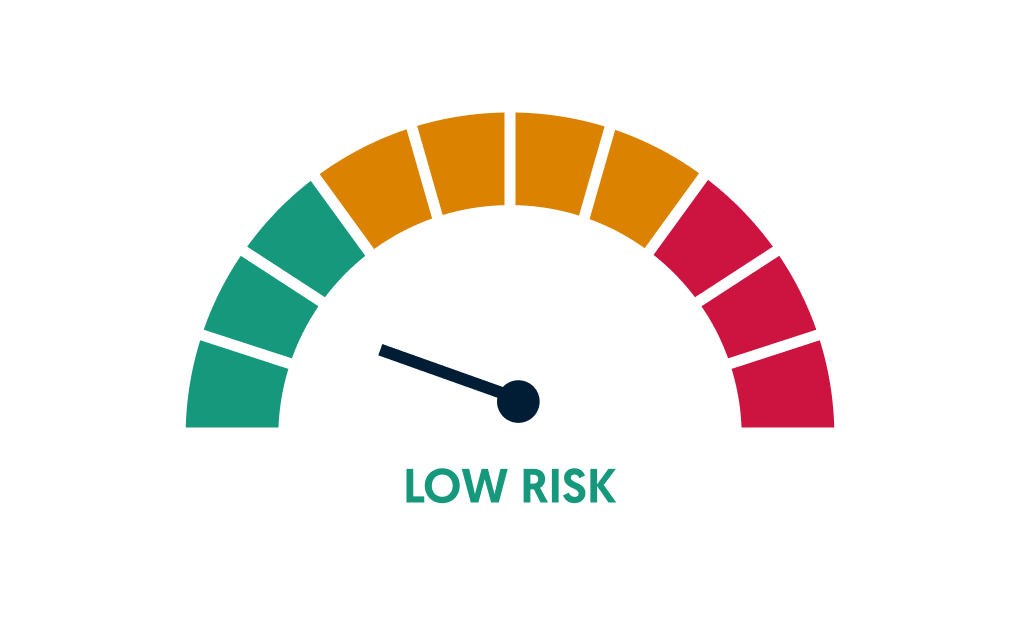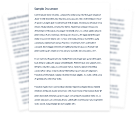Liability Waiver (Personal)
A Liability Waiver (Personal) is a legal document that protects someone who wants to reduce their risk of liability.
4.4 (75 reviews)
Last updated October 24, 2025
under 10 minutes
Suitable for Australia
Written by Edwin Montoya Zorrilla
Reviewed by Damin Murdock
Document Overview
It’s likely that you have had times where you’ve had to sign a form before undertaking a new activity. Whether it’s a simple game of paintball or a martial arts tournament, these activities involve an element of risk. Acknowledging this risk is important – and even more important is that this is in writing. Subsequently, people often sign liability waiver forms which indemnify a party from liability in the event that anything happens. Liability waiver forms protect businesses by notifying that you bear responsibility for the risks you’re taking on. These risks must be acknowledged and accepted by customers prior to commencing the activity.
Avoiding liability
As a business owner, it’s in your best interests not to be liable when an incident occurs on your premises or during your event. Litigation can be time-consuming and expensive for businesses, and this isn’t including the damages you might have to pay. Liability waivers shift the responsibility from your business to your customer.
To minimise the risk of liability, businesses that provide services which involve risk need to ensure that:
- The customer understands the risks involved in undertaking the activity
- Your customer is still willing to undertake the activity
- You have taken all the necessary precautions to ensure the activity is as safe as it can be
If, despite the above, a customer still suffers some injury, then a waiver may hold up in court as a shield from liability, as it is evidence that the customer knew of and assumed responsibility for the risks. However, there are some exceptions.
Exemptions
Negligence
If you were negligent, you can still face legal action in the event that a person is injured or killed. The Law of Negligence and Limitation of Liability Act (2008) Cth defines negligence as the “failure to exercise reasonable care” to avoid causing injury or loss to another person.
Example
You run a bungee jumping business and have for many years. However, in that time you have not updated your equipment, more specifically the harnesses which ensure that people don’t fall. A customer does the jump and the rusted harness snaps. The customer suffers multiple severe injuries and has to pay $22,000 in medical and surgical fees.
In this case, your business would be liable for customer injuries. This is because you have not updated your equipment, something which is instrumental in ensuring your customer’s safety is negligent. By not ensuring your equipment is safe, your customer is put at risk.
Security issues
You cannot waive liability for not having various alarms such as smoke detectors or fire escapes in place.
Public interest
If your service is considered ‘crucial’ and causes harm (such as if the water supply is contaminated), you would unlikely be able to rely on a liability waiver.
Superior bargaining power
Having superior bargaining power could easily pressure or force your client into blindly agreeing to their terms, of which could be a liability waiver. In scenarios like this, there is the potential for these waivers to not stand, most likely pending a court decision.
Statutory obligations
Many public sector institutions have specific statutory duties which cannot be delegated away.
Ambiguity
Liability waivers need to be clear in their expression and their intentions. They must be specific and not overly vague so as to generalise.
The Legal Risk Score of a Liability Waiver (Personal) Template
Our legal team have marked this document as low risk considering:
- The document contains a comprehensive waiver of legal rights, which means that by signing, participants give up the ability to pursue any claims for injuries, damages, or losses that occur as a result of participating in the activities, except in cases of gross negligence or willful misconduct.
- The waiver applies even after the termination of the activities, which extends the limitations on legal recourse indefinitely beyond the actual period of participation in the activities.
- The document is governed by unspecified laws, which could introduce uncertainty regarding the legal framework and interpretations that apply to the terms of the waiver.

Liability Waiver (Personal) Checklist
Complete your free Liability Waiver (Personal) with our checklist
Ensure Proper Understanding and Agreement
Review the entire document thoroughly to ensure you fully understand and agree with all the terms, especially those related to waiving legal rights.
Secure All Necessary Signatures
Obtain signatures from all relevant parties to confirm their understanding and agreement to the terms outlined in the waiver.
Store Document Securely
Keep the signed document in a secure location where it can be easily accessed if needed for future reference or legal purposes.
Review Governing Laws
Familiarize yourself with the laws of the governing jurisdiction mentioned in the document to ensure compliance and proper interpretation of the terms.
Use this Liability Waiver if:
- You want to protect your business from liability and potential lawsuits
- You want your customers to fully understand the risks of receiving the services your business provides
What does this Liability Waiver cover?
- Release of liability
- Negligence and misconduct
- Acknowledgement of risk
- Advice disclaimer
- Health conditions
- Acceptance of terms
Further Information:
View Sample Liability Waiver (Personal)
It's never been so easy
Sign-up to a free Lawpath account
Get started and we'll take care of you. It's that easy.
Browse our 500+ legal documents
Browse our 500+ legal documents to find the perfect match to cover your business needs. We've got Compliance, Employment, Service agreements and more.
Collaborate with e-Sign and Sharing
Having access to your legal documents has never been easier. You can request e-signature, share the document and download for an efficient collaboration.
Create unlimited legal documents and eSignatures for only $39/month.
Upgrade to a Lawpath legal plan to boost your new business.


Here's what people say about Lawpath's Liability Waiver (Personal)
Reviews are managed by BazaarVoice and comply with the BazaarVoice Authenticity Policy. Reviews are independently verified by BazaarVoice and detail our customers' real experiences.
0 reviews
Most Recent
Highest to Lowest Rating
Lowest to Highest Rating

